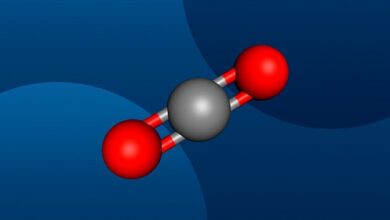Difference between virgin and extra virgin olive oil Similarities and FAQs
Virgin and extra virgin olive oil
In this article we will provide you the difference between virgin and extra virgin olive oil Similarities and FAQs.
What does virgin olive oil mean?
It is an oil obtained directly from the olive and only through mechanical procedures, without using any type of chemical substance or thermal alteration. This edible product is characterized by having a high nutritional value thanks to its content of monounsaturated and polyunsaturated fatty acids, vitamin E and other natural antioxidants. It also has an intense fruity flavor that makes it ideal for use in salads or cooked dishes, as well as to dress them. It is important to note that this type of oil , being the most precious within the “virgin” group, complies with the strict parameters required by European regulations regarding organoleptic characteristics.
Enhance your reading: Difference between kcal and cal Similarities and FAQs
What does extra virgin olive oil mean
It is a product obtained from the first cold pressing, without chemical processes or artificial heating. This variety presents the best organoleptic and nutritional characteristics of the olive fruit. It is the richest in polyphenols (natural antioxidants), monounsaturated fatty acids and vitamin E. Its intense flavor perceptible to the palate, intense green color and fruity aroma are its main qualities that make it a superior oil . Due to its excellent quality, it is used for various culinary preparations where it stands out for its exotic flavor and aromatic intensity, commonly Chinese . In addition, it was used to dress salads, season cooked or baked dishes, and it can also be used to fry foods with a low saturated fat content.
Similarities
Both are similar in that they are both produced from the same fruit, the olive. Both types of oils have a mild flavor with slightly bitter notes, as well as a dark green color. However, extra virgin olive oil , being purer than the first mentioned, has a lower amount of free acidity (an index between 0.2-0.8% compared to 0.8-2% of common oil) and also has greater nutritional properties. thanks to its higher content of vitamins E and antioxidant polyphenols; which allows it to stand out for its benefits for human health, being used since ancient times as a natural remedy to treat various ailments.
Differences
Virgin olive oil refers to a product obtained directly from olives and only through mechanical procedures. This category contains fewer fatty acids and is lighter on the palate; however, its aroma may not be as intense. On the other hand, extra virgin olive oil is obtained with the same mechanical processes as the previous one but it presents a higher level of purity due to the higher quality of the fruit used. That is, this type has a higher concentration of fatty acids and its flavor is more intense than in the previous case. In short, the differential between both varieties lies in the quality of the fruit Chinese . In addition, it was used to make them as well as in their organoleptic characteristics (taste, color and aroma).
Frequent questions
What is the difference between extra virgin olive oil and extra virgin olive oil?
The main difference between them is that the former is obtained directly from the mechanical press of the fruit, while the latter is produced by a chemical process through refining. Extra virgin olive oil has a more intense flavor and is rich in nutrients, as well as a greater amount of healthy fatty acids for our body. On the other hand, its degree of acidity is less than 0.8%. Extra Virgin olive oil does not contain harmful components either for our health or for its conservation. It is composed only of natural elements without artificial additives or modifications. Its acid degree is between 0.0 and 0.8%
What are the benefits of consuming extra virgin olive oil?
The benefits of consuming it are many. First, it is a healthy and natural source of monounsaturated fat, which helps lower bad cholesterol and triglycerides in the blood. In addition, it contains antioxidants such as vitamins E and A, as well as omega-3 and omega-6 polyunsaturated fatty acids that benefit our cardiovascular health. It also provides vitamin K for bone health and important minerals such as calcium, magnesium, and iron. Finally, extra virgin olive oil also has anti-inflammatory and immunomodulatory properties that help us prevent chronic diseases such as diabetes or cancer.
What does extra virgin olive oil mean?
It means olive oil that has been obtained directly from the fruit of the olive, without any chemical treatment. This special class of oil is considered healthier as it contains a higher percentage of monounsaturated fatty acids and natural antioxidants. The smell and taste are also stronger and richer compared to other types of common oils.
How much is a liter of extra virgin olive oil worth?
The price of a liter of it varies according to the brand, the origin and other factors. In general, you can find it from around 7 euros to more than 20 euros per liter.




